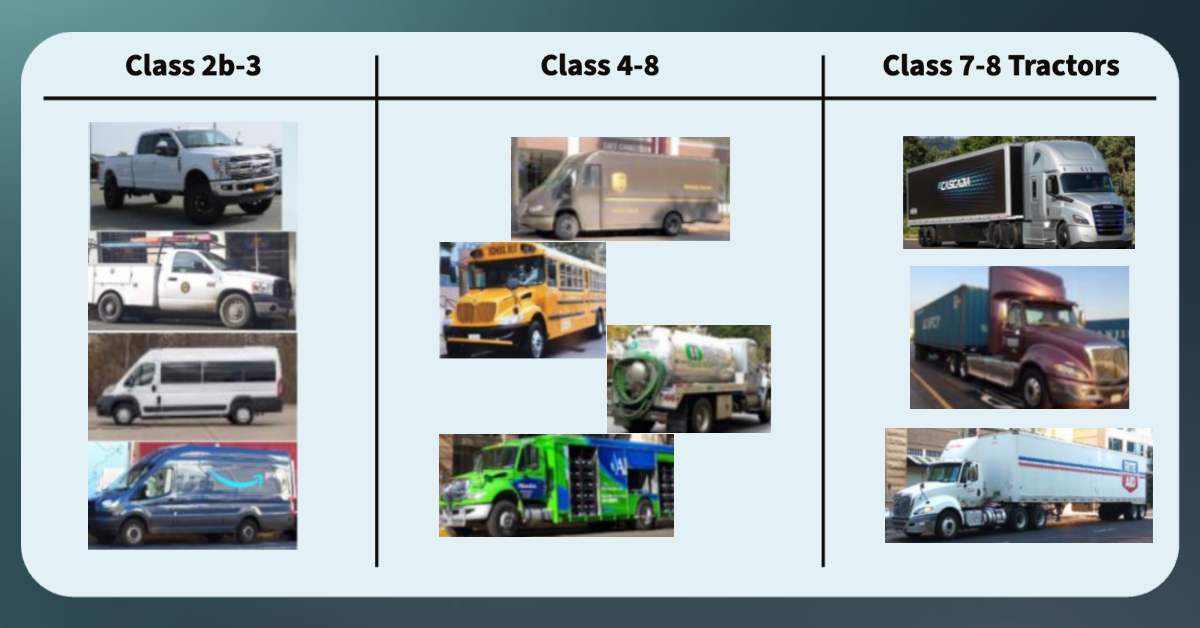
Clean Trucks
Clean trucks, buses, and vans are North Carolina’s transportation future and we must accelerate the transition from polluting diesel engines to affordable, reliable, zero-emissions electric vehicles to protect our health and improve equity for all.
On October 25, 2022, Governor Cooper issued an executive order directing the North Carolina Department of Environmental Quality, with stakeholder input, to prepare a draft ACT rule to the Environmental Management Commission by May 15, 2023. In addition to the ACT rule-making, EO 271 also directs state agencies to pursue and distribute available federal and state funding for strategies to support the growth of the ZEV market, among other provisions.
The ACT rule is one part in a holistic approach towards electrifying medium- and heavy-duty vehicles (Class 2b-8). The rule requires that vehicle manufacturers sell an increasing percentage of new zero- emission trucks and buses through 2035. It does not place regulations on existing trucks and buses. It would also require companies and fleets to report on their operations to inform future MHD electrification strategies. By requiring the electrification of large trucks and buses, the ACT rule will help transform the entire medium- and heavy-duty vehicle industry to reduce pollution harm to our communities and create high quality green jobs in the process.
WHAT ARE MEDIUM- AND HEAVY-DUTY TRUCKS?
From delivery vans, to buses, to tractor-trailers, these are the kinds of electric and clean vehicles that will be more available with adoption of the two rules.
ADVANCED CLEAN TRUCK RULE
This rule would require manufacturers of trucks, buses, and vans to ensure that a certain percentage of their new sales are zero-emission vehicles by a specific date. This guarantees that those who want to make the transition to clean trucks have enough to buy.
The rule establishes a tiered set of requirements based on the type of vehicle: beginning in 2024, manufacturers must increase their zero-emission truck sales to between 30-50% by 2030 and 40-75% by 2035.
North Carolina's Environmental Management Commission has the opportunity to initiate rule making and adopt ACT and/or HDO now. To reduce the public health impacts of diesel pollution on North Carolinians and ensure North Carolina achieves its greenhouse gas reduction targets in transportation, the NC Electric Transportation Coalition is working to support this rule.


